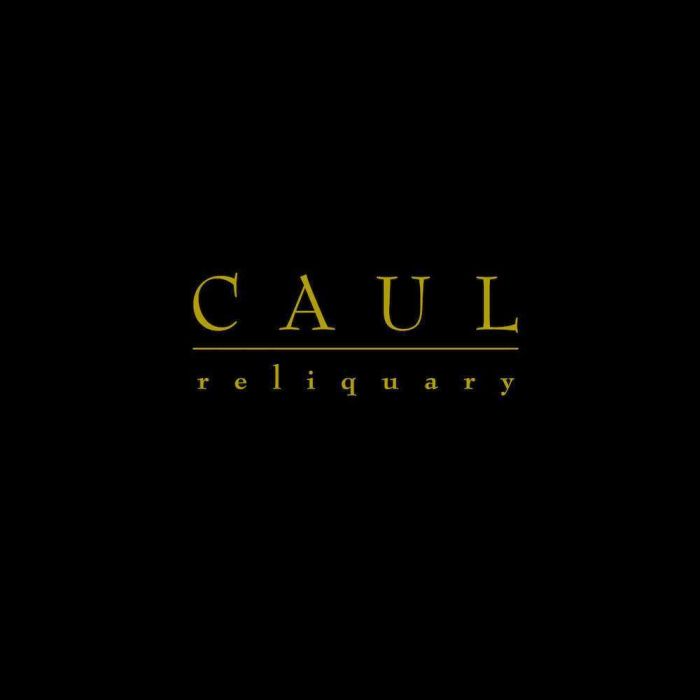Reliquary by Caul (Review)

I once read a review of The Gift of Tears by the Revolutionary Army of the Infant Jesus in which this quote, by C.S. Lewis, was used: “Holy places are dark places.” This quote is more accurately applied to Caul’s work. Reliquary, the third album by this dark-ambient artist, once again evokes scenes of long-abandoned cathedrals in the wasteland, Christian ceremonies carried out in the catacombs, black-robed monks carrying out their sacred duties. Immediately, comparisons to Cold Meat artists like Raison d’Etre will be made. That may be justified, at least thematically. However, Caul’s music is much darker and bleaker than Raison’s, and ultimately more interesting.
The first thing that struck me were the Current 93-esque song titles, such as “The Measure of the Stature of the Fullness of Christ” and “Lights in the Firmament of Heaven.” It’s a good thing that Caul’s music is instrumental, because no lyrics (short of those penned by David Tibet) could match these titles. They sound more like entries in some lost religious tome, titles of religious movements and rituals.
Like his previous album, The Sound of Faith, I find this to be a difficult album to sit all the way through at times, but not because it’s bad. Sure, there is repetition and points of monotony; the tracks all flow together, and at times, it’s hard to tell one song from another. But it’s mainly that my spirit can only take so much crushing. The atmospheres generated are extremely oppressive, like a black cloud hanging over you — not evil, but just solemn and overwhelming. I haven’t heard stuff this dark and massive since, well, the last Caul album.
The opening track, “Christ Altogether Lovely,” quickly sets the mood and tone of the album. Slow, spiralling drones rise out from the sounds of rain. A simple and stark piano melody, along with bells, moves the piece. It’s like the soundtrack to a religious procession, watching the priests march up the aisle to the altar, the censer swinging before them and soft chants slowly filling the hall. It’s at once haunting, sad, and eerie, like all of Caul’s music.
The slow, bell-like tones on “The Measure of the Stature of the Fullness of Christ” sound out against a backdrop of crickets and other outdoor noises. A gentle string-like melody plays, filling the piece with a sense of loss and emptiness, the soundtrack to wandering through some blasted land. “Lights in the Firmament of Heaven” is one of the brighter tracks, but “brighter” is a subjective term with this kind of music. Out of more dark and swirling atmospheres emerge a simple musicbox-like melody eventually joined by a children’s choir. A gong sounds and the choir sounds in full force, like the angels themselves have joined in. It’s probably my favorite Caul song.
As the rest of the album plays, you are actually inside that ruined cathedral, those torchlit catacombs, the ambience of the place and the ceremonies once performed there overpowering you.